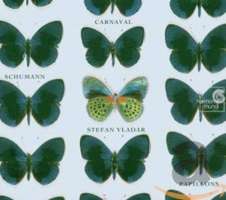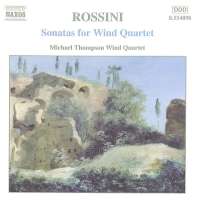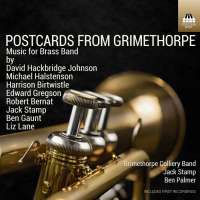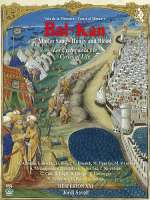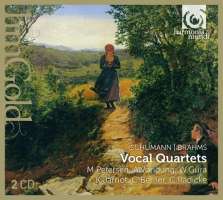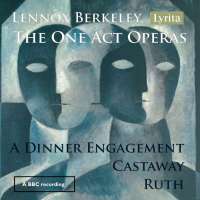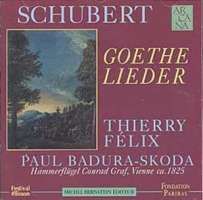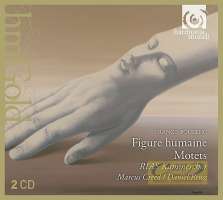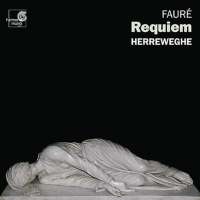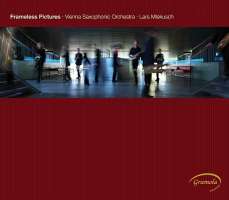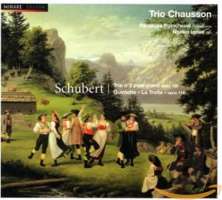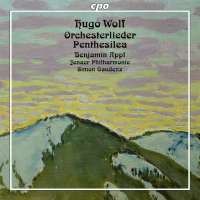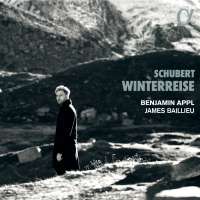
kompozytor
różni kompozytorzy
tytuł
Forbidden Fruit
pełny spis kompozytorów
Faure, Gabriel;
Debussy, Claude;
Mahler, Gustav;
Poulenc, Francis;
Schumann, Robert;
Schubert, Franz;
Strauss, Richard;
Weill, Kurt;
Grieg, Edvard;
Eisler, Hanns;
Schönberg, Arnold;
Quilter, Roger;
Hahn, Reynaldo;
Wolf, Hugo;
Mendelssohn, Fanny
Debussy, Claude;
Mahler, Gustav;
Poulenc, Francis;
Schumann, Robert;
Schubert, Franz;
Strauss, Richard;
Weill, Kurt;
Grieg, Edvard;
Eisler, Hanns;
Schönberg, Arnold;
Quilter, Roger;
Hahn, Reynaldo;
Wolf, Hugo;
Mendelssohn, Fanny
wykonawcy
Baillieu, James;
Appl, Benjamin
Appl, Benjamin
nr katalogowy
Alpha 912
opis
Temptation, prohibition, good, evil... ‘how relevant are these in today's world?’ asks Benjamin Appl. With the complicity of pianist James Baillieu, we are taken on a musical arc from simple folk songs through to the great song composers such as Schubert, Schumann and Wolf, along the way visiting the Impressionists Debussy and Poulenc, exploring ‘new objectivity’ with Weill and Eisler and enjoying compositions by Casucci, Heggie and others. The metaphor of forbidden fruit gives Benjamin and James a wide range of possible interpretations. Whilst some of the song settings centre on sensuality, others focus on socially immoral topics such as incest or sensitive subjects such as abortion. The German baritone embodies each of these stories with a passion and dramatic sense that makes this album a kaleidoscopic and astonishing journey through time and space.
• Debussy: La chevelure
• Fauré: Requiem: In Paradisum
• Grieg: To a Devil, EG154
• Gurney: The Apple Orchard
• Hahn, R: A Chloris
• Heggie: The Snake
• Mahler: Urlicht (from Symphony No. 2)
• Mendelssohn, Fanny: Lieder (6), Op. 9: Die None
• Poulenc: Couplets bachiques
• Poulenc: L'offrande
• Poulenc: Le serpent (for Le Bestiaire)
• Quilter: Now sleeps the crimson petal, Op. 3 No. 2 (Tennyson)
• Schubert: Gretchen am Spinnrade, D118
• Schubert: Heidenröslein, D257
• Schumann: Frühlingsfahrt, Op. 45 No. 2
• Schumann: Loreley Op. 53 No. 2 (August Wilhelmine Lorenz)
• Schumann: Wer nie sein Brot mit Tränen ass, Op. 98a No. 4
• Strauss, R: Das Rosenband, Op. 36 No. 1
• Weill, K: Youkali
• Wolf, H: An die Geliebte (No. 32 from Mörike-Lieder)
• Wolf, H: Ganymed (No. 50 from Goethe-Lieder)
• Wolf, H: Und willst du deinen Liebsten sterben sehen (No. 17 from Italienisches Liederbuch)
Works:
•anon.: I will give my love an apple
• Debussy: La chevelure
• Fauré: Requiem: In Paradisum
• Grieg: To a Devil, EG154
• Gurney: The Apple Orchard
• Hahn, R: A Chloris
• Heggie: The Snake
• Mahler: Urlicht (from Symphony No. 2)
• Mendelssohn, Fanny: Lieder (6), Op. 9: Die None
• Poulenc: Couplets bachiques
• Poulenc: L'offrande
• Poulenc: Le serpent (for Le Bestiaire)
• Quilter: Now sleeps the crimson petal, Op. 3 No. 2 (Tennyson)
• Schubert: Gretchen am Spinnrade, D118
• Schubert: Heidenröslein, D257
• Schumann: Frühlingsfahrt, Op. 45 No. 2
• Schumann: Loreley Op. 53 No. 2 (August Wilhelmine Lorenz)
• Schumann: Wer nie sein Brot mit Tränen ass, Op. 98a No. 4
• Strauss, R: Das Rosenband, Op. 36 No. 1
• Weill, K: Youkali
• Wolf, H: An die Geliebte (No. 32 from Mörike-Lieder)
• Wolf, H: Ganymed (No. 50 from Goethe-Lieder)
• Wolf, H: Und willst du deinen Liebsten sterben sehen (No. 17 from Italienisches Liederbuch)
nośnik
CD
gatunek
Muzyka klasyczna
producent
Alpha
data wydania
04-07-2023
EAN / kod kreskowy
3760014199127

(Produkt nie został jeszcze oceniony)
cena 79,00 zł
lubProdukt dostepny w niewielkiej ilości.
Wysyłka w ciągu 3 dni roboczych
Darmowa wysyłka dla zamówień powyżej 300 zł!
Darmowy kurier dla zamówień powyżej 500 zł!
sprawdź koszty wysyłki






